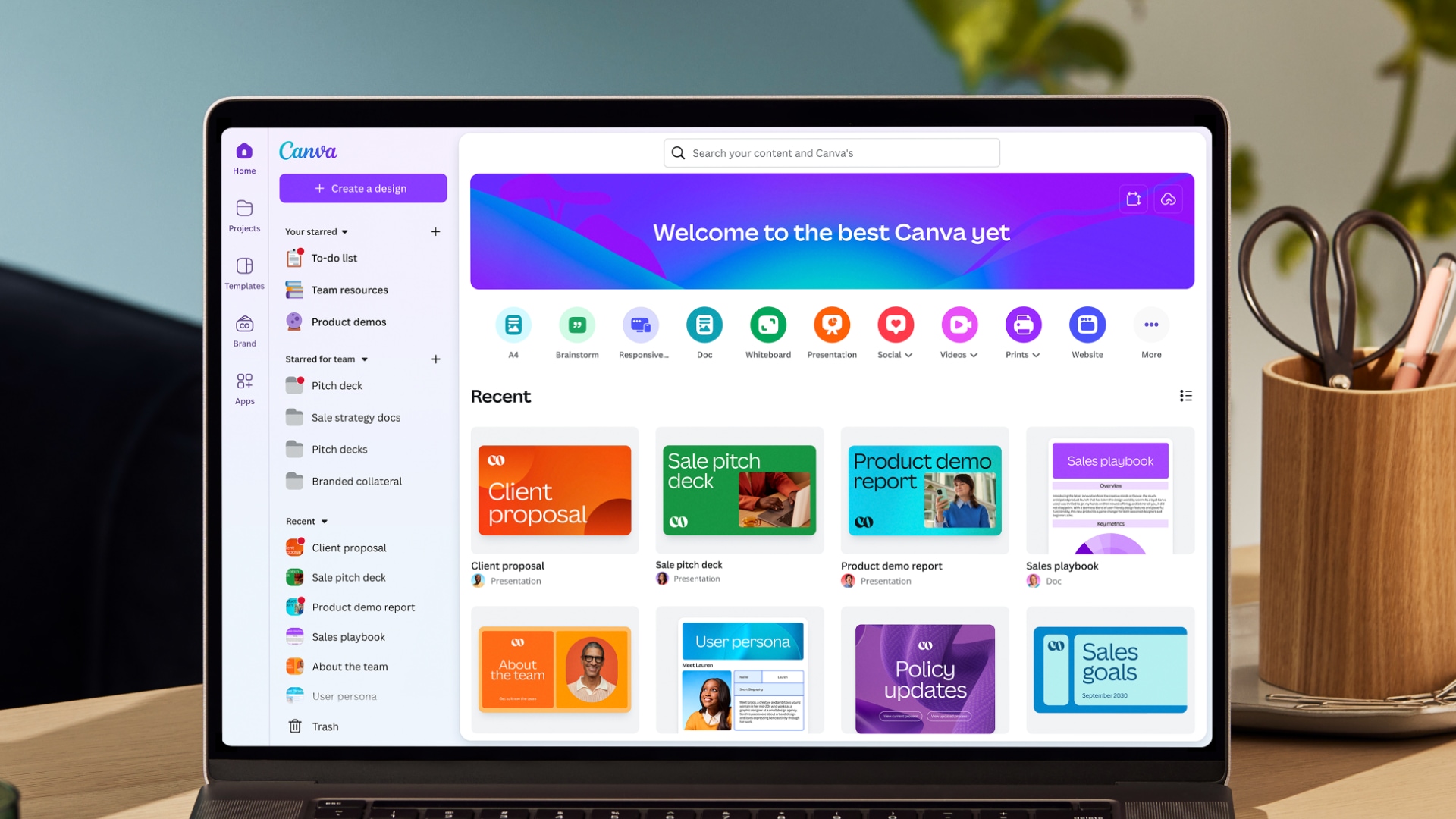Canva Presentations: Complete Buyer's Guide
Strategic evolution in AI-powered design tools
Canva Presentations represents a strategic evolution in AI-powered design tools, positioning itself as the bridge between accessibility and professional capability for business presentation creation. The platform transforms text prompts into context-aware presentation layouts through its "Magic Design" AI feature, differentiating itself from template-based competitors through genuine AI design generation rather than sophisticated template selection.
Market Position & Maturity
Market Standing
Canva Presentations occupies a unique market position as an established design platform expanding into AI-powered presentation creation, leveraging its existing user base and design ecosystem to compete against both traditional presentation tools and emerging AI-native solutions.
Company Maturity
Company maturity indicators demonstrate operational scale and stability through its broader Canva platform success, with the presentations feature representing strategic expansion rather than startup risk.
Growth Trajectory
Growth trajectory evidence includes strategic acquisitions in the AI diagramming space to enhance data storytelling capabilities, positioning Canva for more sophisticated business presentation use cases.
Industry Recognition
Industry recognition includes SOC 2 certification and enterprise adoption across technology companies, marketing teams, and educational institutions.
Strategic Partnerships
Strategic partnerships and ecosystem positioning leverage Canva's broader design platform relationships, though specific partnerships focused on presentation workflows remain limited compared to specialized presentation tools.
Longevity Assessment
Longevity assessment benefits from Canva's established market position and continued investment in AI capabilities, providing reasonable confidence in continued operation and development.
Proof of Capabilities
Customer Evidence
Customer adoption patterns demonstrate clear segmentation across organization types and use cases, with mid-market design teams generally achieving implementation goals faster than enterprise organizations.
Quantified Outcomes
Quantified outcomes include 60% time savings in layout generation according to user testimonials and case studies, though users note challenges with custom branding requirements.
Case Study Analysis
Implementation success varies significantly across organization types, with SMBs typically achieving faster deployment through simpler approval processes while enterprise implementation timelines consistently require 18-24 weeks primarily due to legal approval processes for AI-generated content.
Market Validation
Market validation appears through adoption patterns showing approximately 42% of tech enterprises report using AI presentation tools for routine tasks, though adoption for client-facing deliverables remains significantly lower at around 12%.
Competitive Wins
Competitive positioning evidence shows the platform's differentiation from template-based competitors through genuine AI design generation.
Reference Customers
Reference customer patterns include technology companies, marketing teams, and educational institutions that balance efficiency requirements with brand consistency needs.
AI Technology
Canva's "Magic Design" AI represents genuine context-aware design generation that surpasses template-based approaches while maintaining user control over design decisions.
Architecture
Architecture and deployment leverage cloud-based processing with SOC 2 certification, ensuring enterprise-grade security for professional design environments. Data processing occurs in Australia and Singapore regions.
Primary Competitors
Primary competitors include specialized presentation tools like Tome.app, Gamma, and Beautiful.ai, as well as traditional tools like Microsoft PowerPoint with Copilot integration and Google Slides with AI features.
Competitive Advantages
Competitive advantages center on comprehensive design ecosystem integration that provides broader design capabilities beyond presentations, supporting complete presentation workflows including asset creation, brand management, and collaborative review processes.
Market Positioning
Competitive differentiation emerges through the balance between AI automation and human creative control, with the platform providing AI assistance rather than full automation.
Win/Loss Scenarios
Win scenarios favor organizations that prioritize brand consistency over highly customized design, maintain simpler brand guidelines, and produce primarily internal presentations.
Key Features

Pros & Cons
Use Cases
Pricing
Featured In Articles
Comprehensive analysis of AI Presentation Makers for AI Design for AI Design professionals. Expert evaluation of features, pricing, and implementation.
How We Researched This Guide
About This Guide: This comprehensive analysis is based on extensive competitive intelligence and real-world implementation data from leading AI vendors. StayModern updates this guide quarterly to reflect market developments and vendor performance changes.
40+ verified sources per analysis including official documentation, customer reviews, analyst reports, and industry publications.
- • Vendor documentation & whitepapers
- • Customer testimonials & case studies
- • Third-party analyst assessments
- • Industry benchmarking reports
Standardized assessment framework across 8 key dimensions for objective comparison.
- • Technology capabilities & architecture
- • Market position & customer evidence
- • Implementation experience & support
- • Pricing value & competitive position
Research is refreshed every 90 days to capture market changes and new vendor capabilities.
- • New product releases & features
- • Market positioning changes
- • Customer feedback integration
- • Competitive landscape shifts
Every claim is source-linked with direct citations to original materials for verification.
- • Clickable citation links
- • Original source attribution
- • Date stamps for currency
- • Quality score validation
Analysis follows systematic research protocols with consistent evaluation frameworks.
- • Standardized assessment criteria
- • Multi-source verification process
- • Consistent evaluation methodology
- • Quality assurance protocols
Buyer-focused analysis with transparent methodology and factual accuracy commitment.
- • Objective comparative analysis
- • Transparent research methodology
- • Factual accuracy commitment
- • Continuous quality improvement
Quality Commitment: If you find any inaccuracies in our analysis on this page, please contact us at research@staymodern.ai. We're committed to maintaining the highest standards of research integrity and will investigate and correct any issues promptly.